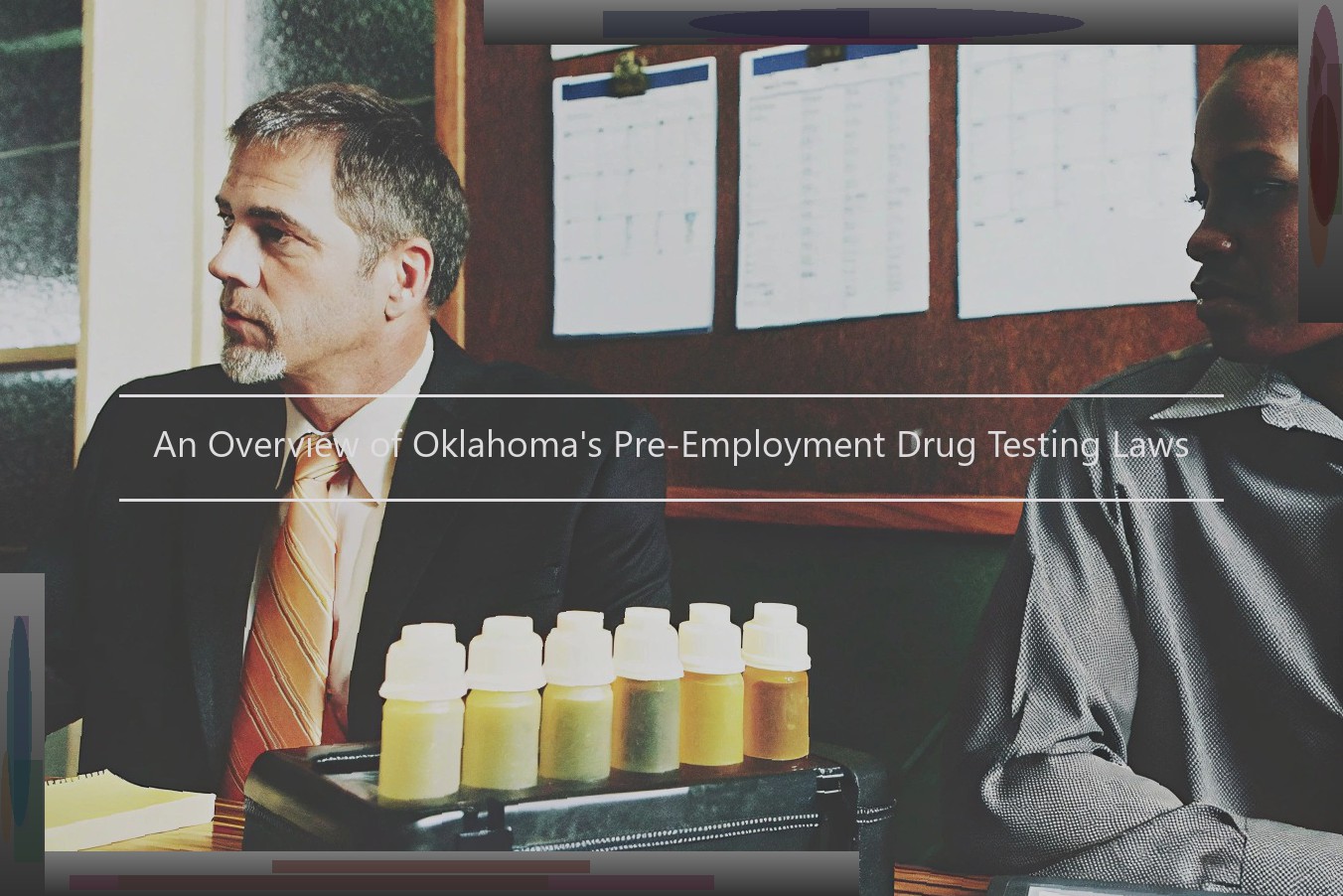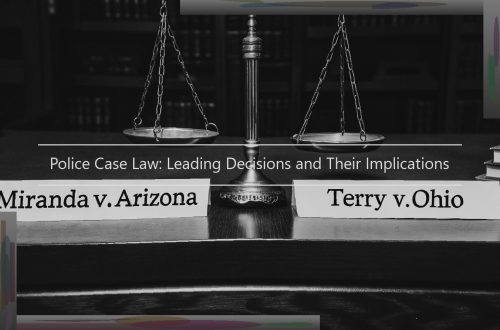An Overview of Oklahoma’s Pre-Employment Drug Testing Laws
The Basics of Oklahoma’s Drug Testing Laws
Oklahoma’s pre-employment drug testing laws are up-front about their goal of requiring employers to maintain a drug-free workplace. These laws provide some exceptions, but the effect of the law is that employers must drug screen almost all applicants before hiring them.
Imagine you have two applicants that are equally skilled and with identical education and experience. One has never been arrested or charged with a crime. Her drug test comes back negative and she has an excellent driving record. The other applicant has a criminal and traffic record and his drug test is positive. Given these circumstances, you would most likely hire the first applicant. Perhaps instead you only had one position to fill but want to keep the second applicant "on the shelf" to hire at a later date . While Oklahoma law allows you to consider a candidate for future openings, the Oklahoma Drug and Alcohol Testing Act (ODATA) requires that you drug test both applicants before you consider them for employment.
Oklahoma statute states that ODATA applies to all employees, even those that were not hired and not required to take a drug test under Oklahoma state law. This presents a dilemma for many employers because they may be required by the law to drug test applicants that they do not wish to hire. A failure to run a drug test in these instances could expose the employer to liability.
There are a couple of exceptions to the mandatory drug testing requirement that apply to very few employers. One exception applies to employees who only perform work that does not bear on public health and safety, such as administrative employees. The other exception applies only to employees who work out of state and are not regularly employed in Oklahoma.

Employer Obligations and Legal Compliance
Employers must adhere to certain requirements when conducting drug tests on job applicants, including creating and implementing specific drug testing policies. The Oklahoma Drug and Alcohol Testing Act ("Testing Act") requires private employers to prepare a written policy regarding substance abuse testing before conducting such tests. 40 Okla. Stat. § 554(B).
The Testing Act outlines the minimum requirements for the content of a written policy. 40 Okla. Stat. § 554(D). Employers are not required to comply with the policy requirements of the Testing Act after one year from establishing its policy, unless the employer amends or repeals that policy. 40 Okla. Stat. § 554(I); see also 40 Okla. Stat. § 554(J) ("If an employer does not comply with the requirements of the Testing Act, the consequences shall be as provided in the policy adopted pursuant to subsection D of this section.").
Employers may implement a "policy excluding applicants for employment from its substance abuse testing, provided such policy is in writing in accordance with the Testing Act." 40 Okla. Stat. § 554(H). Such a policy designating pre-employment drug testing as optional does not excuse employers from all liability for pre-employment testing. Rather, it provides a bonafide defense to claims under the Testing Act for any damages and costs associated with the pre-employment test. 40 Okla. Stat. § 554(I).
Agencies have specific statutory limitations on the conditions under which drug testing would otherwise be permitted. For example, Oklahoma Department of Corrections ("DOC") employees and applicants for DOC employment are subject to more stringent requirements than commercial employers. In addition to the Testing Act requirements, DOC must comply with other state statutes regarding medical examinations. See 57 Okla. Stat. § 501 et seq; see also 56 Okla. Stat. § 101 et seq.
With some limited exception, most public employees and applicants for public employment are prohibited from being subject to random drug testing under the Testing Act or other provisions of Oklahoma law. See 51 Okla. Stat. § 24A.8; 56 Okla. Stat. § 101 et seq; 63 Okla. Stat. § 425 et seq.; 68 Okla. Stat. § 1370 et seq., see also 45 Okla. Stat. § 127A et seq. However, the Testing Act does not apply to certain types of positions exempt from the coverage of the Oklahoma Merit System of Personnel Administration rules and regulations. 40 Okla. Stat. § 401(A)(3).
A broad range of public sector employment is excluded from the coverage of the Testing Act. First, the Testing Act does not apply to employees of: (1) a municipality for whom mandatory membership in the Oklahoma Police Pension and Retirement System is required; or (2) employees whose duties include law enforcement responsibilities and for whom mandatory membership in the Oklahoma Law Enforcement Retirement System is required. 40 Okla. Stat. § 554(A).
Second, the Testing Act shall not apply to an applicant or employee who is required by state or federal law, regulation or contract to submit to a drug test. 40 Okla. Stat. § 554(A)(1).
Third, the Testing Act does not apply to employees whose duties include, in whole or in part, the operation of any vehicle requiring a commercial driver’s license. 40 Okla. Stat. § 554(A)(2).
Employee Rights and Protections
Because the use of a drug test after a job offer is made is so widespread in Oklahoma, the state provides numerous protections for individuals submitting to such tests. Every person applying for a position that involves a non-diplomacy job for any state government agency, board, department, or authority of Oklahoma may be drug tested. In addition, there are numerous other government entities offices, boards or authorities which may require pre-employment testing. Practically, this means just about any state government-related job, with many city and county government jobs, and even jobs involving contractors with government entities that require drug testing. This broad application of law means most Oklahomans who apply for a job will likely be subject to pre-employment testing. An important employee protection as part of these pre-employment testing rules is the requirement that applicants file legal action within 60 days after the occurrence of any violation. For applicants who believe they have been discriminated against for testing positive, failing to pass a drug test or falsely testing positive, the window to file a claim against a potential employer or subsequent employer is very short. While in most cases an individual may have many months to sue an employer for violating federal law (6 months for a claim of discrimination under Title VII or the Age Discrimination in Employment Act, for instance), doing so involving a drug test must be promptly done within 60 days.
Permissible Drug Tests
Employers may utilize drug tests conducted on urine, hair, blood, or breath when drug testing pursuant to the provisions of Section 551, et seq. of Title 40 of the Oklahoma Statutes. These permissible tests are addressed in detail in the rules and regulations published by the Oklahoma Bureau of Narcotics and Dangerous Drugs Control at OAC 468:10-2-1, et seq., with the most expansive testing regime being that which is provided for blood tests, as set forth at OAC 468:10-2-19, and/or urine tests, as set forth at OAC 468:10-2-20. Among other things, the regulations specifically address permissible cut-off values for a variety of drugs, minimal acceptable specimen validity testing practices, and describe roles and responsibilities of the laboratory in the testing process. As noted above, each contractor (whether the contractor is a laboratory or another party performing drug testing on behalf of the employer) must be approved and currently certified in accordance with the rules and regulations of the Oklahoma Bureau of Narcotics and Dangerous Drugs Control.
Use of Results for Employment Purposes
A positive or negative result on an employer-required pre-employment drug test can not only influence the hiring decision, but has a direct impact on eligibility for unemployment benefits under Oklahoma law. As discussed in the second section of this multi-part blog post, the Oklahoma Employment Security Commission ("OESC") automatically denies eligibility for unemployment benefits to any claimant who tests positive for illegal drugs under a drug test required by a prospective employer. See 40 O.S. § 2-408.1. In addition, the OESC considers records of a potential claimant’s pre-employment drug test results when determining if the claimant was discharged for "misconduct."
In most cases, a positive drug test requires that the claimant be found ineligible for unemployment benefits. For example, if the claimant went to work for the employer, the employer required a drug test, and the test result was positive, the claimant is ineligible for benefits because the law mandates that benefits be denied to any claimant who tests positive for illegal substances under a pre-employment drug test. See 40 O.S. § 2-408.1. In fact, OESC rules required denial of benefits even where the employee denies use of the drugs in question if the employer’s drug-free policy was explained and applied consistently to all workers. By contrast, denial of benefits is not automatic if the claimant went to work for the employer drug-free.
It is important to note that although denial of benefits is certain where the claimant does not go to work for the employer and a drug test is positive, even in cases where the employer’s policy is not applied consistently during the hiring process , OESC rules require a case-by-case determination of eligibility where the employee worked for the employer prior to the positive drug test. See Jackson v. Abbott Laboratories, 2004 OK 96, 102 P.3d 155. In Jackson, the claimant was denied benefits due to a positive drug test administered pursuant to the employer’s drug-free workplace policy. However, the policy was applied inconsistently to other employees in terms of the groups tested and the types of drugs tested. The Court found that the OESC did not consider whether the claimant’s failure to adhere to the drug-free requirement was intentional or for good cause, weighing this evidence against the inconsistency of the employer’s application of the rule/non-zero tolerance policy. Such a case-by-case determination is proper under the law.
These uncertainty can make the pre-employment stage a critical point in the employment relationship. However, under principles of tort law and the doctrines of "actual or constructive knowledge" and "ostensible agency," employers can open the door wide for the inclusion of the employee’s drug test results in the proceedings, including consideration by the OESC in its determination of whether the employee engaged in misconduct. See Energyfield, Inc. v. Oklahoma Employment Security Commission, 207 P. 3d 1193, 1198-1201 (Okla. Civ. App. Div. I 2009). Essentially, the employer is liable for the misbehavior of its pre-employee for drug testing purposes. Therefore, an employer should consider ensuring that its policies clearly explain to all individuals involved in the selection process the precise triggers for testing, and the uniformly enforceable consequences of a positive, or negative, test result.
Recent Legal Developments and Changes
All of Oklahoma’s pre-employment drug testing requirements remain in full force today. In the last legislative session, House Bill 1349 attempted to allow Oklahoma employers to perform drug tests on job applicants for positions not regulated under the law. If passed, this bill would have permitted employers to expand their testing program to include those applicants who would not have otherwise been eligible under the statute. On May 14, 2013, the Governor vetoed this bill. Therefore, employers will still be required to test only applicants for those occupations which are expressly covered by the statute.
Employer Best Practices
Oklahoma employers should: (1) Have a written drug testing policy, (2) Use licensed third-party laboratories to conduct their drug and alcohol testing, (3) Include their policies on drug and alcohol testing in their employee handbooks or in separate written materials that are provided to their employees, (4) Include their drug and alcohol policies in their employment contracts, (5) Encourage employees to report on-the-job drug or alcohol use and abuse, (6) Make information about drug or alcohol dependency programs available to employees, (7) Establish a disciplinary or termination policy for those who violate the drug or alcohol policy, (8) Ensure all employers receive a copy of Oklahoma’s Drug-Free Workplace Act, and (9) Provide, in writing, all employees with information about the availability of drug and alcohol counseling programs or other treatment programs .




